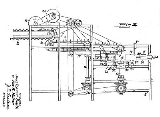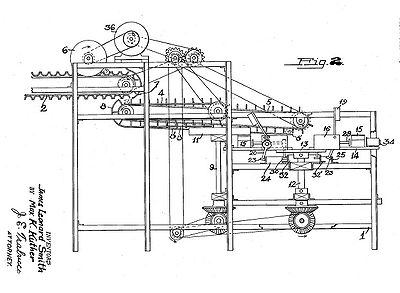
Wilbur-Ellis Co. v. Kuther
Encyclopedia
Wilbur-Ellis Co. v. Kuther, , is a United States Supreme Court
decision that extended the repair-reconstruction doctrine
of Aro Mfg. Co. v. Convertible Top Replacement Co.
to enhancement of function.

) held that modifying the machine to improve its functionality was akin to permissible repair, which Aro had held lawful. The patent did not cover the size of the cans or of the sardines, and Wilbur-Ellis did not replace all of the parts of the machine. No replaced part was patented individually. The patented machine was a combination of unpatented parts. Although the machines were in poor condition, they were not worn out or "spent"--"they had years of usefulness remaining though they needed cleaning and repair."
Kuther "in adapting the old machines to a related use [did] more than repair in the customary sense" but it "was kin to repair for it bore on the useful capacity of the old combination, on which the royalty had been paid." Kuther's original sale of the machines exhausted the patent monopoly.
Supreme Court of the United States
The Supreme Court of the United States is the highest court in the United States. It has ultimate appellate jurisdiction over all state and federal courts, and original jurisdiction over a small range of cases...
decision that extended the repair-reconstruction doctrine
Doctrine of repair and reconstruction
The doctrine of repair and reconstruction in United States patent law distinguishes between permissible repair of a patented article, which the right of an owner of property to preserve its utility and operability guarantees, and impermissible reconstruction of a patented article, which is patent...
of Aro Mfg. Co. v. Convertible Top Replacement Co.
Aro Mfg. Co. v. Convertible Top Replacement Co.
Aro Manufacturing Co. v. Convertible Top Replacement Co., , is a United States Supreme Court case in which the Court redefined the U.S. patent law doctrine of repair and reconstruction...
to enhancement of function.

Background
Wilbur-Ellis purchased four used, patented sardine-canning machines that were badly in need of repair. Wilbur-Ellis tried to persuade Kuther, the patent owner, who had originally made and sold the machines, to refurbish them but met with no success. Wilbur-Ellis therefore hired a mechanic to repair and modify them so that they would handle different sized cans and different sized sardines. Kuther then sued Wilbur-Ellis for “making” the machine anew.Opinion of the Court
The Supreme Court (per Justice DouglasWilliam O. Douglas
William Orville Douglas was an Associate Justice of the United States Supreme Court. With a term lasting 36 years and 209 days, he is the longest-serving justice in the history of the Supreme Court...
) held that modifying the machine to improve its functionality was akin to permissible repair, which Aro had held lawful. The patent did not cover the size of the cans or of the sardines, and Wilbur-Ellis did not replace all of the parts of the machine. No replaced part was patented individually. The patented machine was a combination of unpatented parts. Although the machines were in poor condition, they were not worn out or "spent"--"they had years of usefulness remaining though they needed cleaning and repair."
Kuther "in adapting the old machines to a related use [did] more than repair in the customary sense" but it "was kin to repair for it bore on the useful capacity of the old combination, on which the royalty had been paid." Kuther's original sale of the machines exhausted the patent monopoly.

